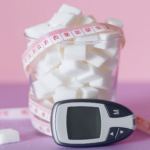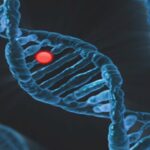Whether it’s a dollop on your morning cereal or a simple snack on the go, a daily dose of yoghurt could be the next go-to food for people with high blood pressure, according to new research from the University of South Australia. Conducted in partnership with the University of Maine, the study examined the associations […]
WHO advises not to use non-sugar sweeteners for weight control
The World Health Organization (WHO) has released a new guideline on non-sugar sweeteners (NSS), which recommends against the use of NSS to control body weight or reduce the risk of noncommunicable diseases (NCDs). The recommendation is based on the findings of a systematic review of the available evidence which suggests that use of NSS does […]
Most U.S. children use potentially toxic makeup products, often during play
A study by scientists at Columbia University Mailman School of Public Health and Earthjustice found that most children in the United States use makeup and body products that may contain carcinogens and other toxic chemicals. Results are published in the peer-reviewed International Journal of Environmental Research and Public Health. The study, based on more than 200 […]
To Block The Carcinogens, Add A Touch Of Rosemary When Grilling Meats
Rosemary, a member of the mint family and a popular seasoning on its own, also has benefits as a cancer prevention agent. Apply it to hamburgers and it can break up the potentially cancer-causing compounds that can form when the meat is cooked. J. Scott Smith found out about rosemary’s strength against the compounds while […]
Cancer biologists find DNA-damaging toxins in common plant-based foods
In a laboratory study pairing food chemistry and cancer biology, scientists at the Johns Hopkins Kimmel Cancer Center tested the potentially harmful effect of foods and flavorings on the DNA of cells. They found that liquid smoke flavoring, black and green teas and coffee activated the highest levels of a well-known, cancer-linked gene called p53. […]
Soaking Potatoes In Water Before Frying Reduces Acrylamide
Good news for chips lovers everywhere — new research in the journal Science of Food and Agriculture shows that pre-soaking potatoes in water before frying can reduce levels of acrylamide. Acrylamide is a naturally occurring chemical that occurs when starch rich foods are cooked at high temperatures, such as frying, baking, grilling or roasting. There […]
Possible correlation shown between TMI nuclear accident and thyroid cancers
Penn State College of Medicine researchers have shown, for the first time, a possible correlation between the partial meltdown of the Three Mile Island Nuclear Generating Station and thyroid cancers in the counties surrounding the plant. Three Mile Island (TMI), located near Harrisburg, Pennsylvania, had a partial meltdown accident on March 28, 1979. During the […]
Boiling Broccoli Ruins Its Anti-cancer Properties
Researchers at the University of Warwick have found that the standard British cooking habit of boiling vegetables severely damages the anticancer properties of many Brassica vegetables such as broccoli, Brussel sprouts, cauliflower and green cabbage. Past studies have shown that consumption of Brassica vegetables decreases the risk of cancer. This is because of the high […]
Ultra-processed foods may be linked to increased risk of cancer
Higher consumption of ultra-processed foods may be linked to an increased risk of developing and dying from cancer, an Imperial College London-led observational study suggests. Researchers from Imperial’s School of Public Health have produced the most comprehensive assessment to date of the association between ultra-processed foods and the risk of developing cancers. Ultra-processed foods are […]
In cells, UV-emitting nail polish dryers damage DNA and cause mutations
The ultraviolet nail polish drying devices used to cure gel manicures may pose more of a public health concern than previously thought. Researchers at the University of California San Diego studied these ultraviolet (UV) light emitting devices, and found that their use leads to cell death and cancer-causing mutations in human cells. The devices are […]









